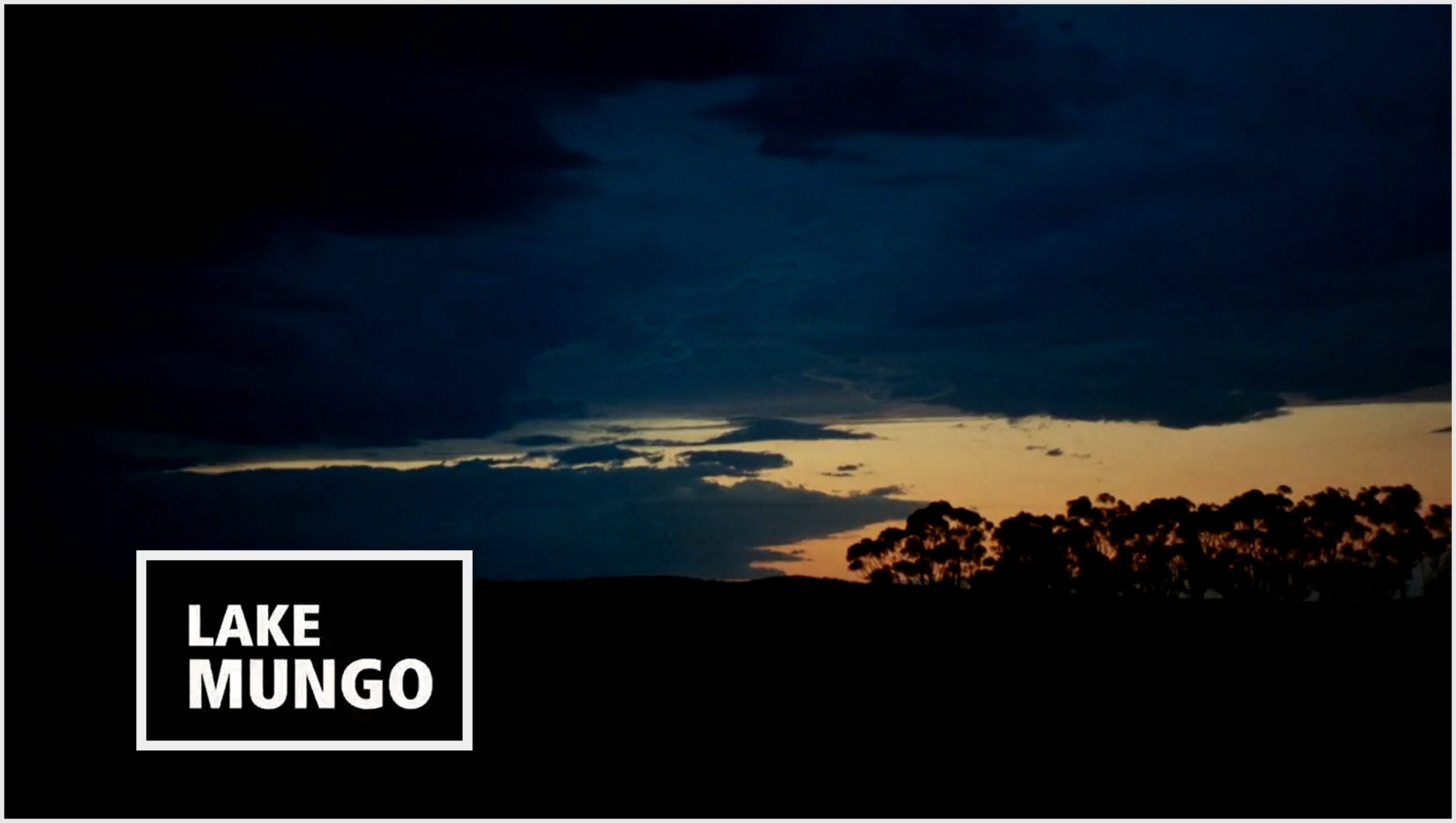-
Prime Matter
I learned of Mark Snow’s death yesterday. He produced many memorable scores, though probably none more iconic than the X-Files Title Theme, today’s Measures feature. (Its title is an alternate form of “prima materia”.)
The X-Files was a flawed but wonderful show. Each episode was capable of engendering intrigue via explorations of conspiracy, the supernatural, and at its best, the worst of human behavior. Our biases, assumptions, predilections and constant need to believe. Mulder and Scully’s dispositional interplay was always an effective draw. Placement of the religious impulse into a scientist and doctor, opposite an incorrigible expert on the nuttiest theories ever concocted, was a brilliant decision. Their dialogue often rose above the sometimes-mediocre plotlines.
And Snow’s score was the perfect frame for it all. When the setting was spooky, but also when it was lighthearted. The eerie notes and whistles amplified the nightmare fuel as much as they did the humorous eccentricities. The same beats that set up the horrific “Home” somehow also worked for “Mulder and Scully Meet the Were-Monster”. Despite the strength of the show’s early run, the latter is still my favorite episode of the series overall; it is hard not to love its subversion of the genre and of the writers’ own tendencies.
If you are curious, you can hear Snow describing how he stumbled upon the inspiration for the tune and the resulting process in this interview.
-
Dunes at Carcross

East of Whitehorse and west of Watson Lake, Yukon, along the Alaskan Highway, there lies a detour worth taking. You can either turn south at the aptly named Carcross Cutoff or instead at Jake’s Corner*.
Continue down and you will find yourself in a small town in the rain shadow of four mountains. Its relatively dry environment is the location of an anomaly: a collection of sand dunes. Fed over time by silt sailing on winds from nearby lakes and home to unique vegetation.
Today’s photo feature: a peculiar, arid destination supported by verdant surroundings in the far North. Taken August 2022.
Here is another look:

*The name is listed as “Jakes Corner” online, but nearly every sign I saw there had the apostrophe, so I am leaving in the possessive.
-
Apparitions in Ararat

Recently, I began my latest dive into the darker genres of film and television. A fair amount of horror with sprinklings of tense dramas and crime documentaries. Included in the itinerary were 2021’s Sasquatch and 2024’s I Saw the TV Glow, plus revisitations of classics like 2003’s Memories of Murder.
Sasquatch was a clever bait-and-switch which I did not mind one bit. I suspect people who believe in cryptozoological creatures may feel differently, but I found its central conceit extremely effective. I Saw the TV Glow was a heart-wrenching exploration of identity, expression and acceptance. It is unfortunate that this type of conveyance of the trans experience, in the language of psychological horror, resonates as it does within our current zeitgeist. Memories was as spectacular as the first time I watched it. Not too many films globally reach the cruising altitude of peak Korean cinema.
I would highly recommend all the aforementioned works.
Spelunking into cultural caves often neglected by the mainstream also brought me to revisit another classic: 2008’s Lake Mungo. Part of a solid and growing output of Australian horror in the twenty-first century, alongside the likes of The Babadook (2014), Relic (2020), and Talk to Me (2022).
Mungo is strange because since its release, critics and audiences have given it widely disparate reviews. They have labeled it as “one of the scariest films ever made” and “a masterpiece” as often as mentioning it as “nothing unique” or “boring”. It is the kind of reputation that helps a movie develop cult status and invites in budding cinephiles as the years pass by. One’s experience of any piece of art will be tempered by taste, and Mungo may on the surface seem quite a polarizing creation: a low-budget pseudo-documentary ghost story. Perhaps not screaming “revolutionary” or “special”.
Allow me to relay my thoughts. I love this film. And to those who have never given horror a try or despise scary flicks, I would suggest this as a gem not be overlooked. Frankly, an ideal introduction to an oft-dismissed genre. Its scares are well-placed, telegraphed and layered. It is horror of the highest order – where fear and sadness are intertwined with hope and elation to produce a more meaningful narrative.
-
Truth and Meaning in Concrete
He could not complete it before he died (in escape of a regime repeatedly reborn, it seems), but Walter Benjamin’s Arcades Project still had reverberations across the twentieth century. A book of personal notes and reflections combined with analysis and fiction combed from academic and historical sources, Arcades was a loosely organized patchwork of what the material could mean to materialists.
Among its many achievements was one of the more complex deployments of the ‘dialectical image’ or ‘dialectical montage’*, a technique of layering facts – about pieces of history and their relations – to reveal deeper meanings. Within Arcades, Benjamin used this technique to discuss the political projects led by the elite in nineteenth century Paris, as the working class fought to realize their democratic ideals through constant cycles of revolution. He studied all manner of objects and wrote extensively, trying to identify their value – as appliances or ornaments to social, political and economic beings. By placing them beside each other, he sought to force revelation.
In that spirit, let us take a moment to wade into a similar exercise in critical theory by considering linked questions relating to economic growth, here in the twenty-first century:
- What spurs growth? How do we manage it? Why do cities grow the way they do? How do they develop in context of competing visions of growth?
- What are we, collectively, trying to achieve through this growth? How is it tempered by our cultural, economic and climate realities? Is the emergent political project within our control?
And here’s a last set connected to all the above:
- What kind of growth are we talking about? Who benefits from it and in what proportion? How do changing definitions of growth reshape our social relations?
These questions are regularly at the front of my mind as I think about the promised outcomes of policies touted by the highest offices. Allow me today to point you to two short films addressing many of the headaches above, in a brief juxtaposition aimed at bringing forward the deeper political relations at play.
-
Reflection

A passage to serenity.
Located between Aero Point in Prince Rupert and Tuck Inlet at Lax Kwa’alaams. The greenest greens floating on the bluest blues, drifting liking a daydream through bracing mists.
Just remember to turn ‘roaming’ off before you arrive, lest the Alaskan signals snag your device.
-
“What do you do, exactly?”
It is a question that came up during a social outing last month. The inquirer was not curious about job titles, but skills. The specific competencies that I employ during work that are considered valuable by my employer. A question not too easy to answer and one I rarely reflect on, because I, like so many others, am consigned to work in order to be granted basic rights like food, shelter, and opportunities of self-expression.
While I have always tried to contribute to society in alignment with my values, interests, and in service to betterment for all, labor options are perennially limited. Having the privilege of a solid support network and financial security have also allowed me to pursue higher education or take breaks from employment without dire consequences – again, a dignity in life not yet available to all.
I returned to the question again recently. We live in a largely service economy, one rife with bullshit jobs where a large amount of “value” is tied to moving capital up and unsustainable growth to no end. When the economy “improves”, it disproportionately benefits those who already have capital, power, and the means to manipulate the system to their liking. You can probably tell I am not a big fan of how things are currently structured. I am unconvinced that we are meeting our fundamental commitment to future generations in all respects. But I also reject much of the talk of the alienation between the worker and the product; human societies and economies are complex beasts and we owe it to the collective to seek self-edification on how small, perhaps abstract acts, can build a better future for all. We need people who provide physical labor, but we also need systems thinkers. The alchemy required in each era shifts, largely guided by the alchemy of the economic order itself.
The difficulty comes within the degrees of good faith in which the efforts are undertaken.
-
Sky Lights

Eleven years ago, on a late winter evening in February, young adults – mostly students from local post-secondary institutions – made their way to Vancouver shores for a protest in solidarity with those marching the streets of Kyiv. They lit biodegradable sky lanterns and cast them into the darkness, reflecting on the symbolism afloat and enjoying the company of friends.
The gathering lasted an hour or so before the crowds dispersed. The flickering candles drifted away like reverse snowfall afire, above a city of more permanent embers. The dimming lights settling amongst stars.
Ephemeral wanderers cloaked by the cosmic veil. Yielding to its insignificance.
-
Dreadlock Holiday
The Rainbow Nation are World Test Champions! Their first ever ICC tournament win. I was unable to watch the first couple of days of the action, so missed the top-tier bowling displays from Australia’s legendary quartet and South Africa’s future hall-of-famer Rabada. Though I did catch most of Markram and Bavuma’s match-winning partnership on Friday morning. And saw every single being cheered as the batters rotated strike methodically towards a record run chase early Saturday.
The best team to never have won a global event no more, South Africa finally crossed the line in a final and in doing so notched a victory for cricket. A sport shambolically led by incompetent authorities that nonetheless produces thrilling contests despite constantly shooting itself in the foot. Just explaining the scope of international cricket and attempting to compare its formats, tournaments and politics to outsiders by contrasting it with other sports feels so often an exercise in futility. Nothing about it makes any sense. Anyway, kudos Proteas, thank the stars you beat the Aussies.
Which brings us to 10cc and their 1978 hit “Dreadlock Holiday”. I had the playlist going before the start of proceedings on Saturday to block out the silence and keep the tinnitus at bay, and the shuffle landed on this track just as the live feed began. The coincidental timing could not have been better. I kept the television muted and let the song play out. I had forgotten how sketchy the lyrics were; a bunch of white Mancunian guys singing about their experiences in the Caribbean will definitely have some tone-deaf moments. Through reggae no less. But this has been litigated over nearly five decades. No further comment here.
It is just that: I don’t like cricket. Oh no… I love it!
-
Urbex
 Undertaking urban exploration somewhere in rural Scotland, 2016 (credit: DL)
Undertaking urban exploration somewhere in rural Scotland, 2016 (credit: DL) -
Wisps of Water

I was stopped at a gas station a couple weeks ago and noticed that rain had begun falling towards the west. It is not every day you get dark collapsing clouds contrasted with a whiter backdrop this clearly, so I took a quick click.
In case you have not heard, Canada is on fire (again and on schedule). The prairie provinces are bone dry and alight. Every bit of rain during the warmer months melts the heightening anxiety among the collective.
Here in B.C., the fire season never truly stopped. The blazes in the far northeast of the province have been burning since last year, as an example. But things will slowly get worse. Every time I do a pre-summer drive from Prince George to Vancouver, as I did in mid-May, I gain an understanding of how bad the wildfire summer is likely to be. Those of us who have even a modicum of experience repeatedly surveying the land during critical periods can get a good sense of conditions.
The equation is simple – the greener, the better. We know it will get hot, we know our effect on the environment, and we know that aside from random dry lightning, people will continue to make stupid mistakes. I have rarely driven past an entirely yellowed or golden-browned B.C. Interior landscape and not seen it become a tinderbox. It does not mean mass evacuations or grand impacts to civilization are guaranteed, but it does not bode well. This year, things are looking bad. Not 2023 bad, which was the worst fire season on record, but bad enough. I foresee opening up CBC News in a couple months and having déjà vu, except I will be reading headlines pertaining to our backyard rather than Alberta, Saskatchewan or Manitoba.